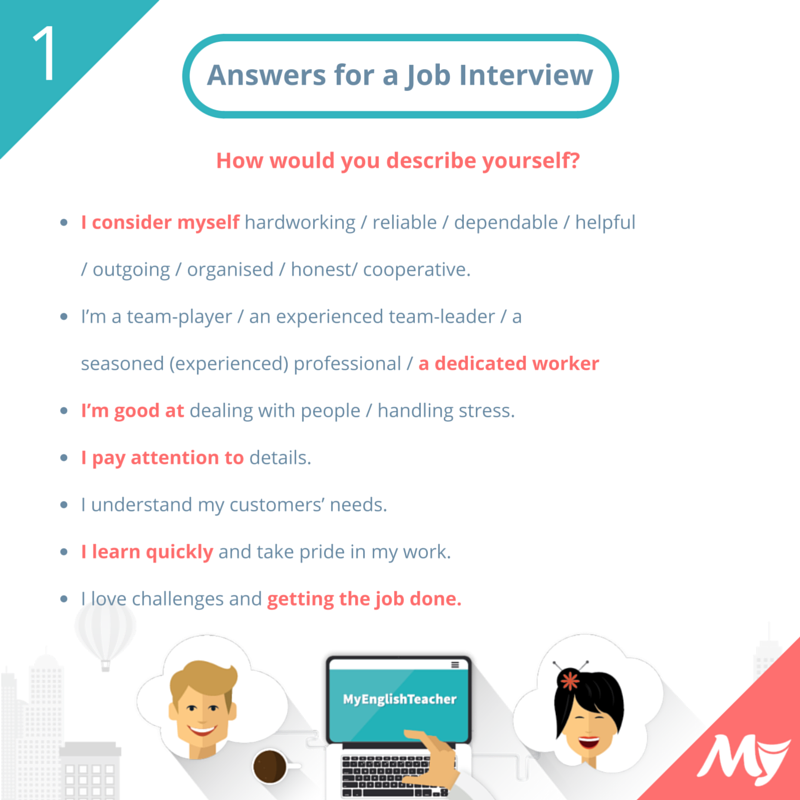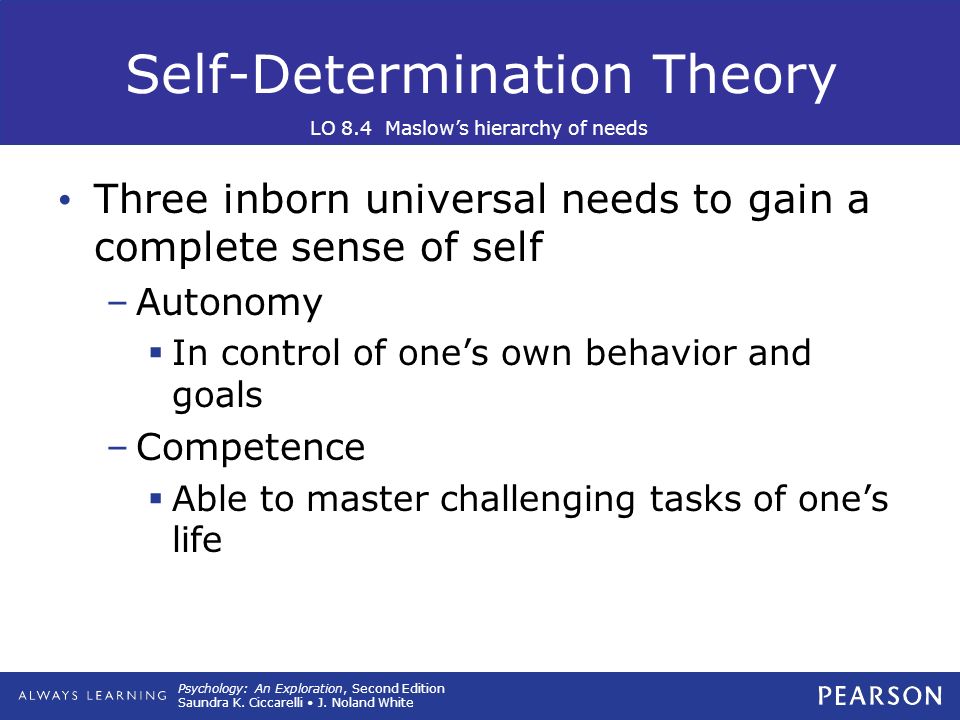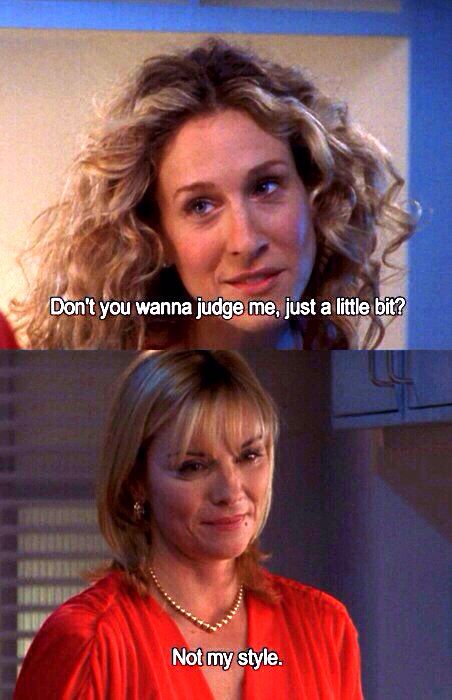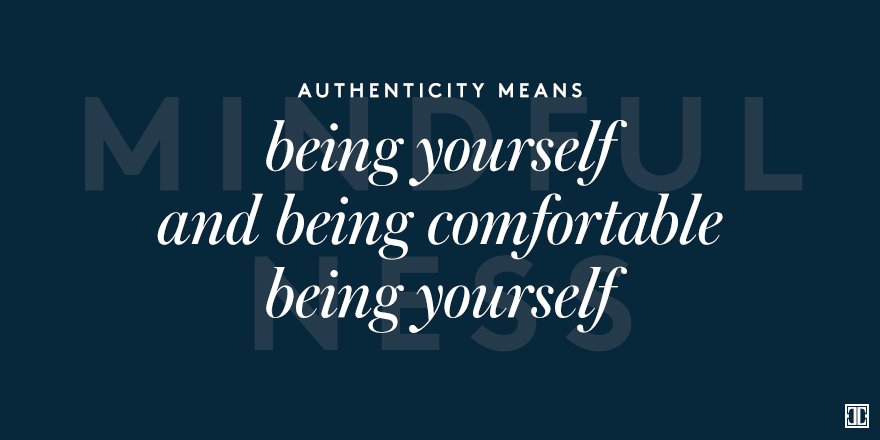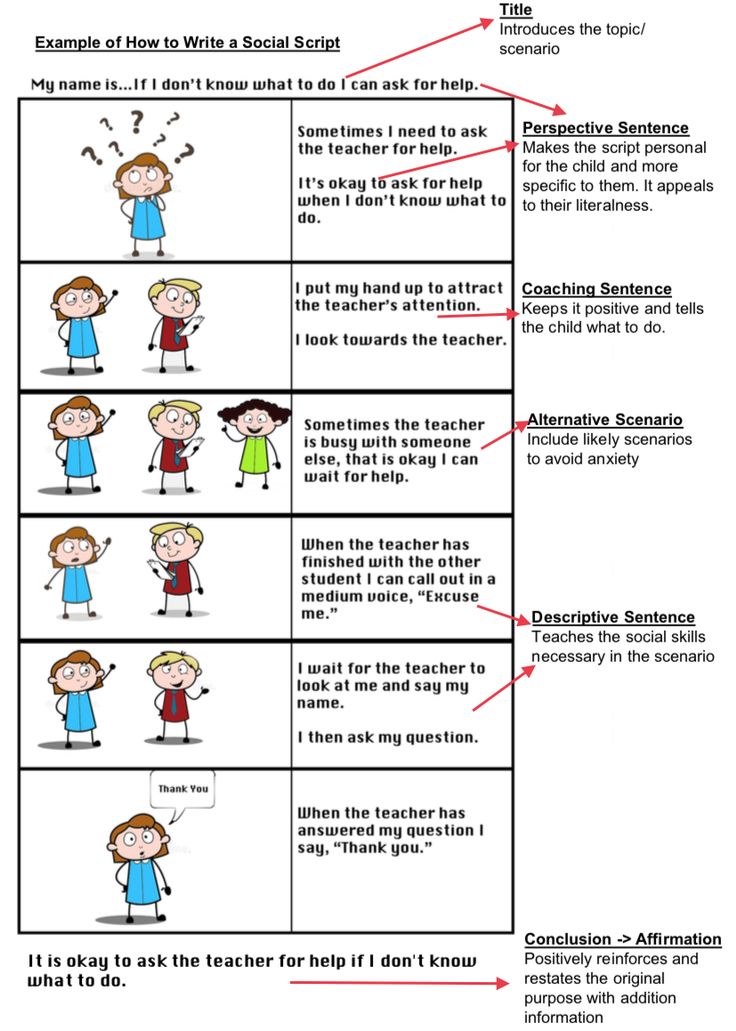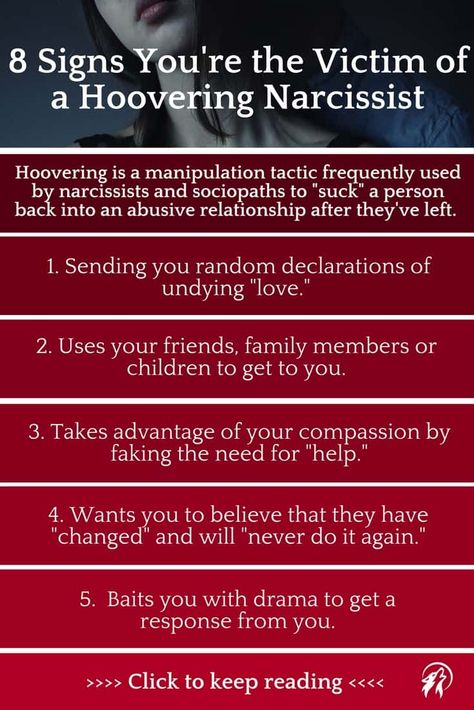Registered behavior technician interview questions
Registered Behavior Technician Interview Questions & Answers
15 Most Common RBT Interview Questions
This article will go over 15 of the most common interview questions you'll find at an RBT interview. Keep reading to become well-prepared for your RBT interview.
1. What specifically is it that you admire regarding the culture? Are there any changes that you would like carried out?
Being aware of a company's culture is very useful in finding out if the workplace is one that you'll like.
Every workplace has its own culture, set of written and unwritten rules, and customary lingo. These are needed for you to form a bond with other workers employed with a company.
But to learn the benefits and specifics of a company's culture will help you to gain a better understanding of if the company is favorable to you. It'll also notify you of things that should be of concern.
This question can also be interpreted to mean the culture of general RBT work. In some jobs, RBT being one of them, the workplace culture can change not from clinic to clinic, but region to region.
If this is where the interviewer is taking the question, then the same advice regarding one specific clinic can be generalized into a broader scope relating to RBT training or the culture of a different facility.
2. Do the RBT and BCBA have a high turnover rate? Is anything being done to stop workers from getting exhausted from their responsibilities?
In the field of RBT, burnout does occur, though can change from place to place. This can be said about ABA as a whole, though not always for the same reasons.
The BACB recently reported that the demand for the services that behavioral analysts offer to clients was raised by over five percent from 2010 to 2021. Some therapists and their supervisors are sometimes told to cover responsibilities that limit their abilities, which can lead to stress.
The high demand for therapists isn't predicted to fall anytime soon, so new employees will have to be hired if the turnover rate of therapists could grow.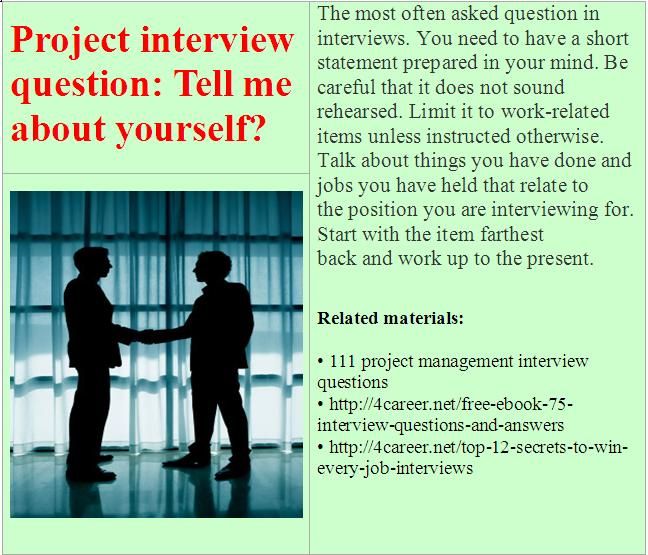
Any company being interviewed by a potential worker should know exactly about their rate of turnovers, though it can sometimes be a touchy subject for some businesses to discuss.
Having this data can help them work to lower employer burnout and keep up morale in the workplace entirely. A company that acknowledges when their workers perform well through a simple recognition, such as the employer of the month, can help with this.
3. Are there a lot of clients given to RBTs? What about hours should I anticipate working per week?
Clients take off much of the interactions that RBTs make with other people during a work week. But did you know that the number of them can correlate to the number of hours that you'll work?
Scheduling is something that changes more than periodically, which might be set per the number of hours you're first told that you'll be working for a clinic. Notify the person you talk to in an interview about the last hours you wish to work, including the most.
For RBTs with children and large families, balancing life with work might be trickier than for single employees or those with no offspring.
4. What is the average number of clients found in the caseload of every BCBA?
Knowing what the BCBAs caseloads amount to can give you a hint at the sort of maintenance and support that you'll receive there. A BCBA with a huge caseload can have a difficult time providing support to different RBTs, let alone one.
As you might expect, stress can quickly become a customary issue when trying to work under conditions where there's a lack of support from the people you call your supervisors.
Based on the clinic or facility, the demand could be so great there many cases might take longer for clients to finish up their courses. The turnover rate of RBTs is tied to heavy caseloads as well.
5. In the first stages of training, what should be expected? Is there training that takes place afterward?
Your prospective employer should give you thorough training in the initial stages of your employment.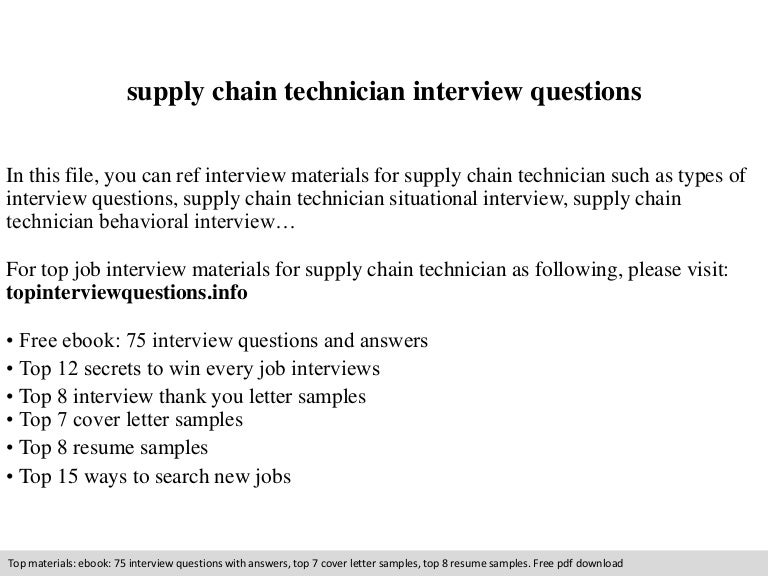 People that are new to the field and haven't worked at a clinic or relevant place for RBT duties before typically need more training than others coming straight from a different facility.
People that are new to the field and haven't worked at a clinic or relevant place for RBT duties before typically need more training than others coming straight from a different facility.
If you aren't certified to work as an RBT, the organization you currently work for shouldn't have an issue giving you the training course that's needed to go into the RBT exam.
40 hours is the most you'll spend on this. Simultaneously, companies will need to give you and the rest of the employees more training, something usually done through certification as it becomes necessary.
6. When do the ABA sessions begin and end?
While this can change with every business and the preferences of clients they see, session times are usually about this, say as an average business day. If you're an early riser, there won't be any problems with you getting up to make for work.
Eight in the morning is when the work ordinarily starts. Some RBTs work twelve-hour shifts, so the end time of a normal or slightly busy day would be eight in the evening.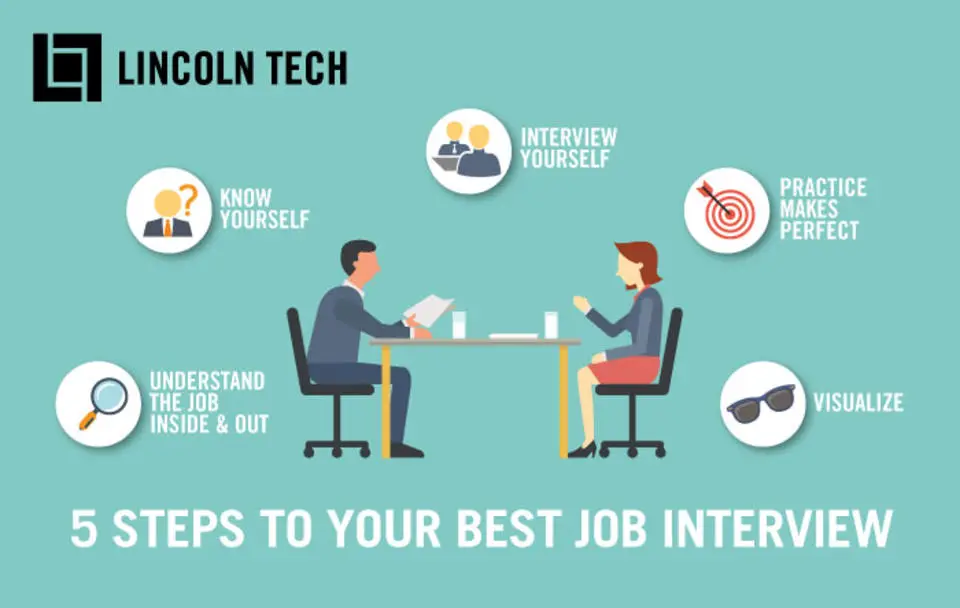
Working a daily twelve-hour shift might not sit well with everyone, something that most good clinics should understand. Your working hours are best told during the interview so that scheduling conflicts or other problems won't arise sometimes later if you're taken in.
7. Is there an area where sessions usually happen?
One thing that therapists love about ABA is that it can take place almost anywhere that's safe for the therapist and the client. But you'll want to ask about this during the interview to know where most of your days will be spent.
With an idea of your working location, you can better learn the kinds of resources that you'll have at your disposal. If you're in a single room, for example, it might be hard to get some of the things you need to conduct therapy with some clients.
But if several rooms are available, you could quickly pick up items as you need them. Some RBTs could be tasked with working at the homes of clients, yet this shouldn't be expected from new employees.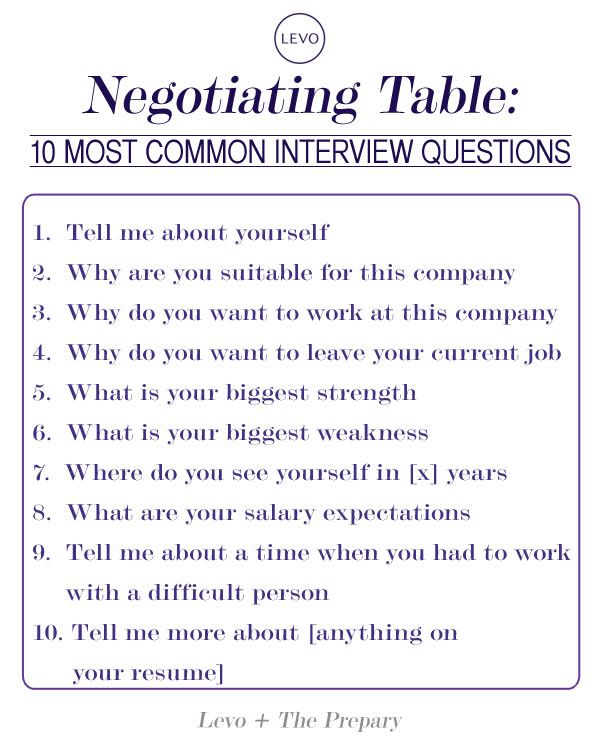 But if you will be seeing patients somewhere that requires a commute, it's something to mention as the interview commences.
But if you will be seeing patients somewhere that requires a commute, it's something to mention as the interview commences.
8. Do RBT commutes have a limit on distances?
Since fuel prices are in constant fluctuation, ask whether there's a limit to the distance you're expected to drive to work, home, or another destination to see a client.
Some clinics have a maximum commuting distance. You may even get an allowance or additional pay for the time that you spend behind the wheel on the job.
9. Will the cancellation policy of the company also cancel out my pay?
Most RBTs receive hourly pay. If a client misses, cancels, or doesn't show up for a session, then it's possible that the company might not compensate you. Cancellation pay is provided at times, such as when it happens within 24 hours at the start of a session.
This is a policy that often changes with every business. Let the interviewee know your concerns about their payout stipulations when clients make a cancellation.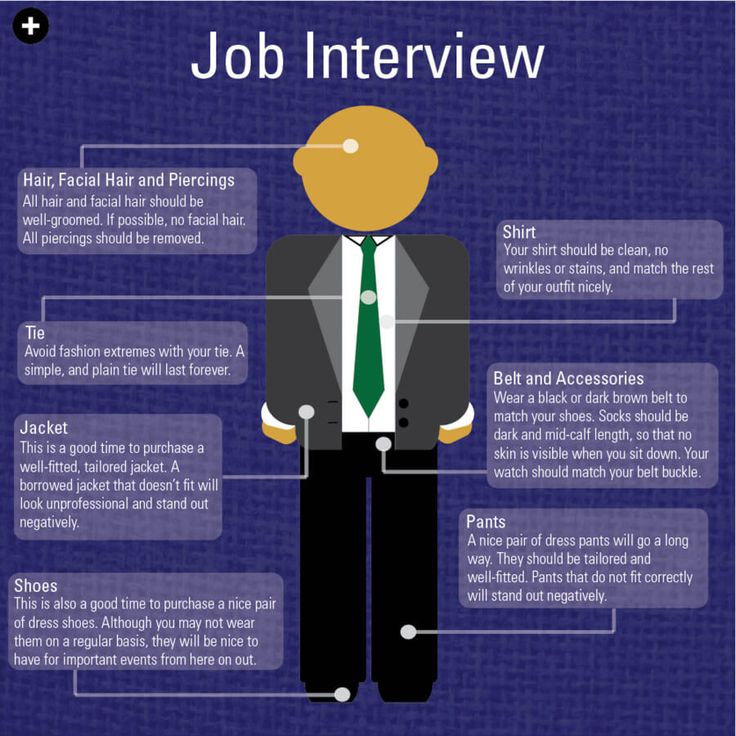
10. Is data digitally or manually gathered?
Every ABA facility relies on data collection to learn about its clients and how well the business is performing. The most basic form of gathering data is by using the old-fashioned method with a pen or pencil.
While data collection in this regard is decreasing, it's still needed in situations that would be hard for therapists to make reports while away from a computer. If done digitally, the company might provide you with a tablet or other electronic device. Phones, PCs, and laptops are sometimes given to employees.
11. Are RBTs heavily managed by BCBAs?
Personal interaction with a BCBA must be done for at least five percent of the hours that an RBT works. This time is considered to be supervision, though many BCBAs spend significantly more time with RBTs than the percentage specified.
12. Is crisis management part of the initial training?
Since autistic clients sometimes develop symptoms that result in poor behavior, crisis management is recommended for all staff on hand to learn.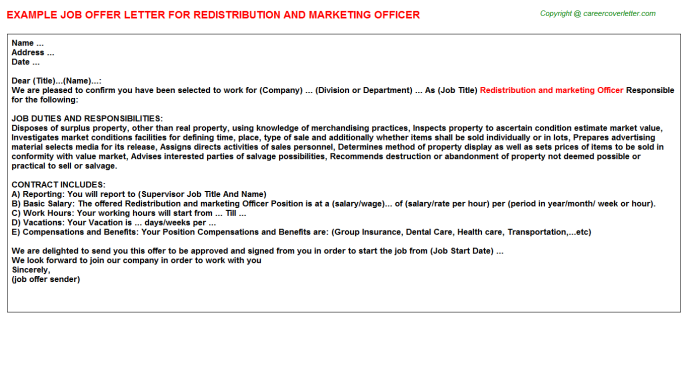 Does the company not provide this training to their employees? You might be eligible for reimbursement by getting CM training at a different location.
Does the company not provide this training to their employees? You might be eligible for reimbursement by getting CM training at a different location.
13. Are performance reviews done often?
Away from the management of BCBAs, performance reviews can help RBTs pick up areas they may need work on. It can take the form of constructive criticism or general feedback on the work being done.
14. Can everything featured in the benefits be listed?
RBT is mostly part-time, so benefits might not be the same for other therapists at the same company. Ask if a benefits package exists and what it consists of. If there's a certain amount of hours that you must work every week to qualify for certain benefits, you'll want to ask about that, too.
15. Will a non-compete need to be signed?
A non-compete form is given by some businesses to stop employees from taking away clients for themselves or another business.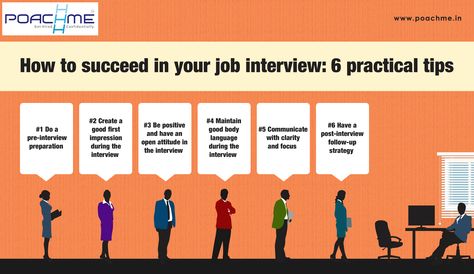 It might not be mentioned to you in the interview unless you bring it up as it takes place.
It might not be mentioned to you in the interview unless you bring it up as it takes place.
FAQs
How do I prepare for a behavior technician interview?
The best preparation method is to have on hand a set of questions that you wish to ask. If you would rather memorize them, do so the day after the interview.
The fewer questions you ask about the company, the higher your chances of working with a business that you're not fully aware of. You don't have to study the question like a test but don't forget to bring up what you consider the most important questions to you as early in the interview as you can.
What should I expect at my RBT interview?
The interview should be relaxed, cordial, and fun for the employer. Job interviews are more casual in some ways than they were in the past, though you should remain as professional as possible.
Behavioral Technician Interview Questions | SimplyHired
In this article, we explore common behavioral technician interview questions and sample answers to help you prepare for your interview.
What is the most important thing a behavior technician can do for a family?
This question gauges your understanding of what family members value most in your role. State the most important thing you do for a family, then discuss how to uphold these values. Your answer should emphasize family-centered care and why you think it is the most significant part of your job.
Example answer: "I provide families with a safe environment for their loved ones, as well as help them with training needed to live independently. I ensure every resident is treated with dignity and respect, and I continue to care for them while they are adjusting to the facility."
How do you define success for your behavior technician work?
Your response should show enthusiasm about the job and that you can connect with patients in a positive way. The description of your expectations for success will show whether you have enough energy for the job. This is a good opportunity to show your passion for being a clinician.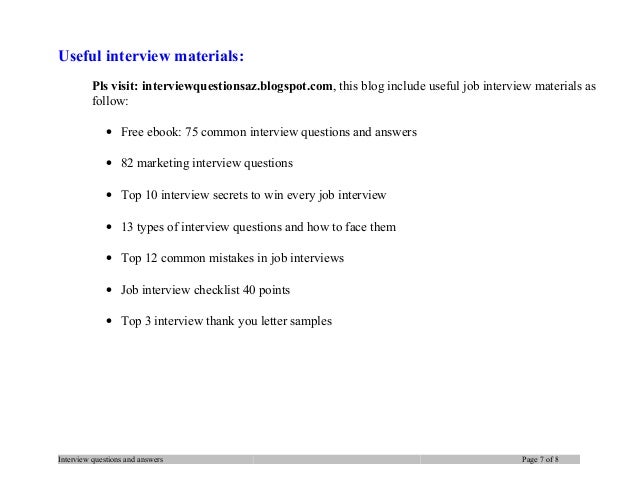
Example answer: "My goal is to help patients reach their highest potential. I want to make a positive change in their life and show them that everyone has potential to make positive changes. I expect to see patients who have less behavioral emergencies, who are engaged in activities and who are becoming more independent in their daily life. I also want to see patients who are more open to families visiting them and who have developed some meaningful relationships with staff."
What would be the most important thing you would do on the first day of the job?
Behavior Technicians are the front-line workers who interact with patients. They are the ones who see first-hand if a patient's behavior can be improved. Expect to be asked this question when applying for a position as a Behavior Technician, since you will be asked to give your opinions about how you would improve patient behavior.
Example answer: "My first day on the job would be a time to learn what is in place and what needs to be improved.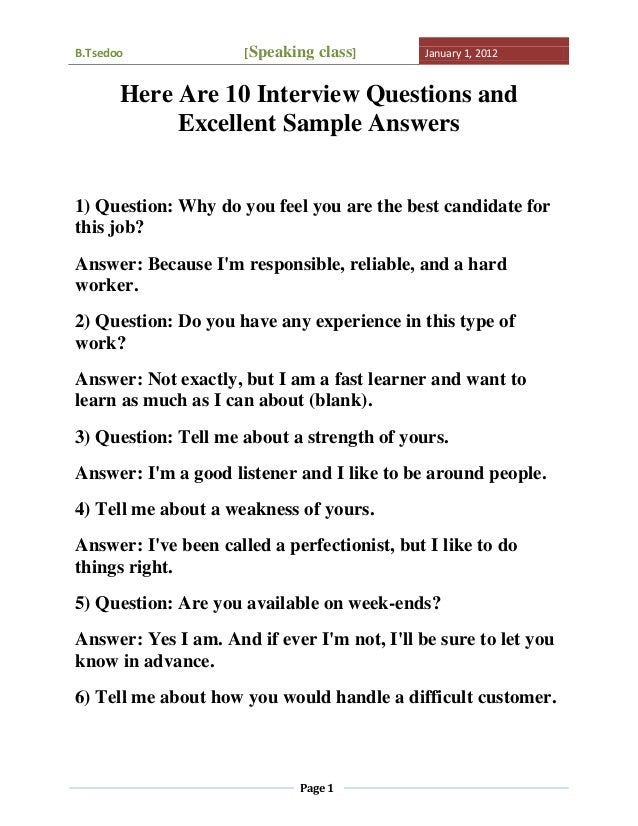 I would also make time to introduce myself to the patients and get to know their personalities. That way I can personalize my treatment plan, which will increase my chances of successfully improving their behavior."
I would also make time to introduce myself to the patients and get to know their personalities. That way I can personalize my treatment plan, which will increase my chances of successfully improving their behavior."
Are you able to work independently?
This question is designed to evaluate your ability to work without constant supervision. The employer wants to know whether you are a team player or not. Some positions require close supervision, while others require a lot of independent work. In your answer, discuss your previous work experience to let the interviewer know whether this role will need close supervision or if you can work independently.
Example answer: "In my past experience, I was able to work independently without any issues. I was in charge of scheduling appointments with clients and sending out reminders, ordering supplies and distributing mailings. I had to meet deadlines and my supervisor was available for questions when needed. However, I am able to work with team members for the best results.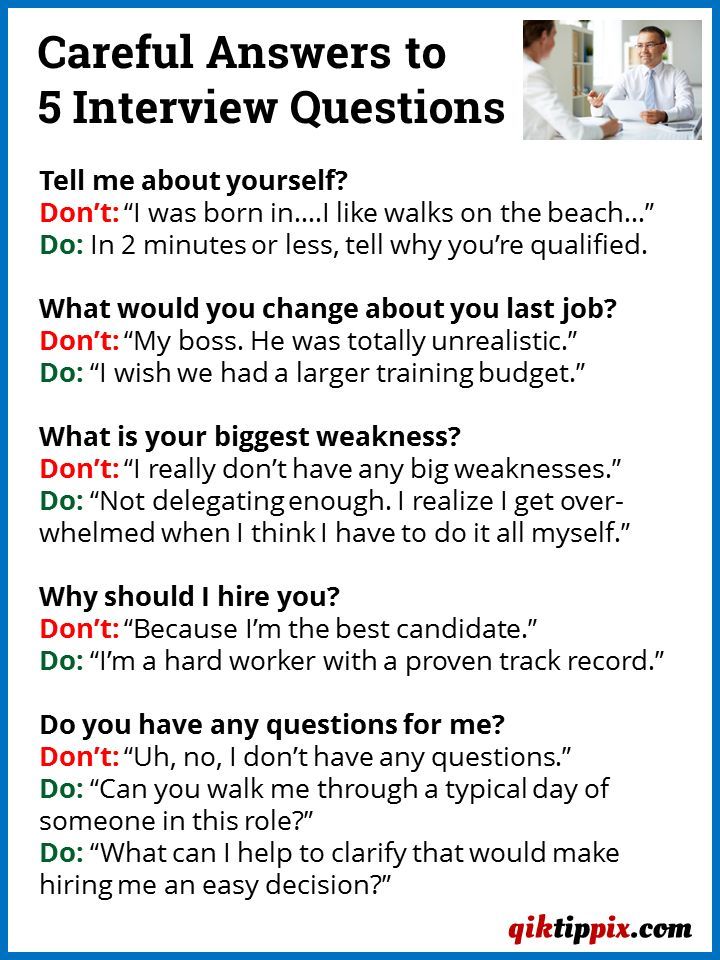 "
"
How do you handle disruptive students?
This question could cover a wide range of scenarios. When answering, consider your personal experience dealing with disruptive students. You should focus on how you handle disruptive students, whether it's through positive reinforcement or identifying the root of the disruption.
Example answer: "I try to build a rapport with students and show them I care about them as people. I also use positive reinforcement with strong behavior management techniques. I work in teams with other adults to serve as support. I also make sure to have a close relationship with parents so they understand the situation. I also make an effort to get to know the student, their interests and their concerns."
Registered Behavior Technician Interview Questions (with Sample Answers) • BUOM
March 25, 2021
Knowing how to answer the most frequently asked interview questions with Registered Behavior Technicians can help you successfully interview for this specific position. Regardless of your previous experience and qualifications, knowing what questions may come up during an interview can help you prepare and increase your chances of being selected for the role. Getting answers to certain recorded behavioral technique interview questions can be an important career step, but it takes research and commitment. In this article, we will discuss some of the most frequently asked questions in behavioral interviewers and provide sample answers to some of them. nine0003
Regardless of your previous experience and qualifications, knowing what questions may come up during an interview can help you prepare and increase your chances of being selected for the role. Getting answers to certain recorded behavioral technique interview questions can be an important career step, but it takes research and commitment. In this article, we will discuss some of the most frequently asked questions in behavioral interviewers and provide sample answers to some of them. nine0003
Common Behavior Technician Interview Questions
These questions often appear in interviews of all kinds, including for the role of registered behavior technician:
-
What are your main strengths?
-
What are your main weaknesses?
-
What did you like and dislike about your previous role?
-
Where do you see yourself in five years?
-
Why are you interested in this role? nine0003
-
How did you hear about our company and the vacancy?
-
What are your expectations regarding your salary?
-
Why do you think you are the right person for this job?
-
What questions do you have for us?
-
Can you tell us a little about yourself?
Registered Behavioral Interviewers: Experience and Background Questions
These questions are also common to most interviews in various fields and are currently related to the candidate's career:
-
What experience do you have as a behavioral technician?
-
What have you done in the past year to improve your skills as a behavioral technician?
-
Have you ever had a moment when you were overwhelmed with heavy work?
-
Tell us about your professional relationship with previous colleagues?
-
Do you have more experience of working alone or in a team?
-
What made you choose a career as a certified behavioral technician? nine0003
-
Can you describe a difficult moment or situation in a previous similar role and how you handled it?
-
Have you ever mentored someone else about behavior therapy?
-
Can you tell us about a mistake you made at your previous job and how you got rid of it?
-
Why did you quit/want to quit your previous employer?
Behavior Specialist's Advanced Recorded Questions with Sample Answers
These questions are directly related to the job of a Behavior Specialist and often come up during job interviews:
-
How do you deal with aggressive patients?
-
What are some of your most commonly used therapies?
-
How do you deal with disagreements in the care team?
-
How do you deal with the situation when the family is sick?
-
How do you explain difficult medical terms or treatments to patients?
-
Can you describe a situation where the facility you were working in underwent major changes and explain how you adapted to them?
-
What do you do when you don't know the answer to a medical question?
-
Can you describe your experience with skill acquisition and behavior reduction?
-
Can you tell me about a time when you were able to convince a reluctant patient that the prescribed treatment plan was the best solution? nine0003
-
Have you ever felt dissatisfied with your job as a behavioral technician?
Registered Behavior Interview Questions with sample responses:
Review these specific behavioral technique questions along with sample responses:
1.
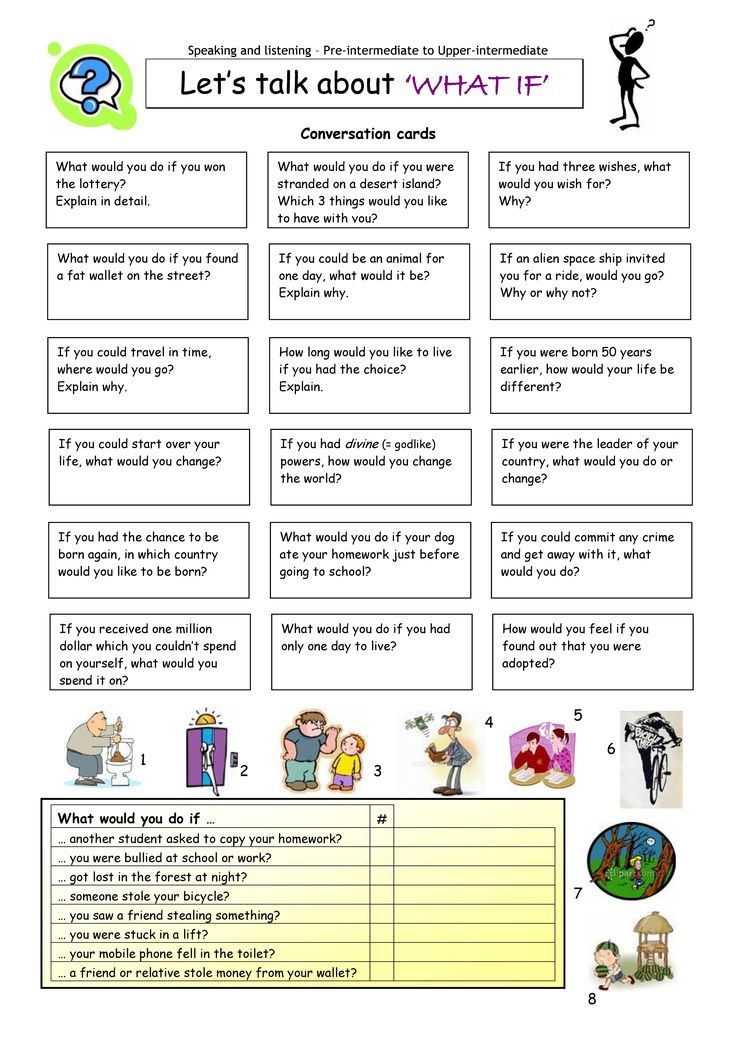 What specific individual patient care plans have you implemented or revised?
What specific individual patient care plans have you implemented or revised? The interviewer used to ask this question to better understand your experience and preparation for this role. They are aimed at learning how much training you need to be able to act independently if you get a job. nine0003
Example: “In my previous job, implementing and reviewing patient care plans took up more than half of my work time. I usually worked with doctors and nurses to create individualized treatment plans and adjust them as needed. Most doctors asked me for feedback. to the optimal course of treatment for a particular situation and would use my input in patient care and drug prescribing.”
2. Can you tell us about your previous experience of working alone and in a team? nine0149
Working as a Registered Behavior Technician involves working both independently and as part of a disciplinary team. The interviewer wants to evaluate your experience and competence in both scenarios and expects you to provide specific examples for both scenarios.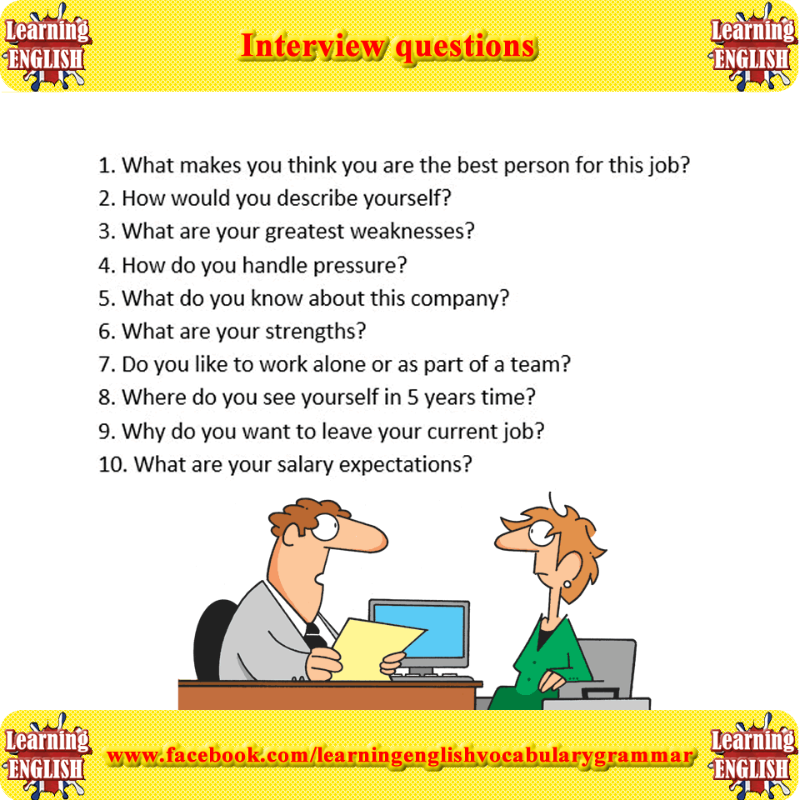
Example: I have been working with patients one-on-one for about four years, so I am very well equipped to work on my own. However, I also have experience working with teams, mainly because I always seek feedback from my colleagues when I need to develop a treatment plan and find solutions to difficult patient problems. Most behavioral problems with patents are unique in some way, so discussing ideas with fellow techies is usually an effective way to find suitable solutions.” nine0003
3. What do you consider your area of specialization in behavioral health?
This question is often asked to an interviewer to gauge a candidate's passion for a role. The best answer is usually a mention of your specialty, as well as personal reasons for your preference.
Example: “One of my specialties is being sensitive to the needs and concerns of others. I believe that empathy cannot be developed beyond a certain point, but it is absolutely necessary in our work, as patients must see and understand that we are more than professionals doing our work and then living our lives; they need to see that we really care about them and their well-being on a very personal level.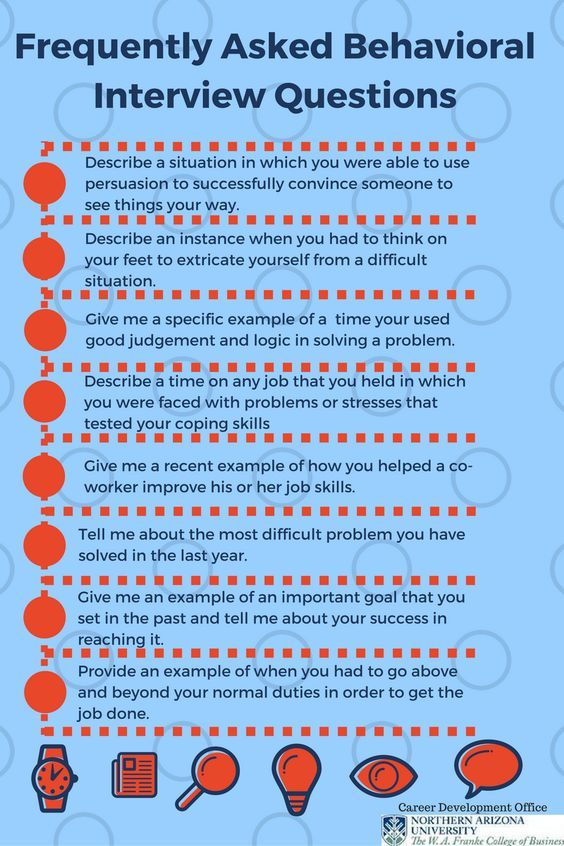 ” nine0003
” nine0003
4. What tools do you use to manage your time?
Being well organized is usually an important part of being a behavioral therapist because it shows you can make the most of your time at work. The interviewer usually asks about this to see how you manage your time, as well as to check if you are up to date with modern technologies and if you can use modern time management tools. nine0003
Example: “I use both online and offline apps and devices to manage my time. My main time management tool is the smartphone app I use, which helps me plan all my appointments, take notes, and do other things like that. At the same time, I use sticky notes that I stick on my desktop monitor to remind myself of certain tasks. In general, I am very time conscious and like to make the most of every minute of the day.” nine0003
5. What do you think is your best quality as a behaviorist?
The interviewer is likely to ask this question to find out what you consider your main professional advantage.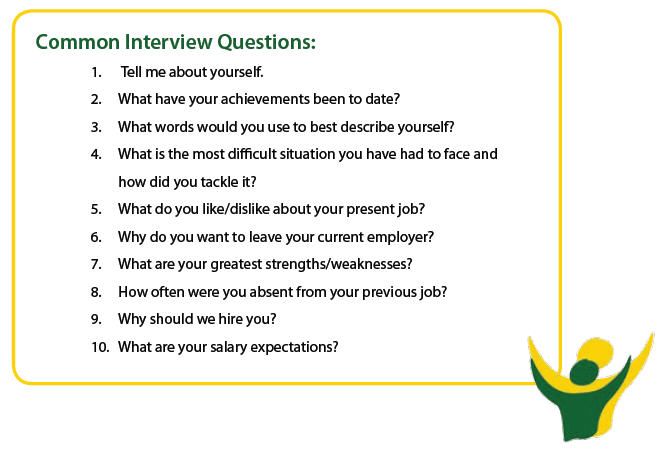 The best way to answer is to also give a concrete example of a situation in which you showed your core quality.
The best way to answer is to also give a concrete example of a situation in which you showed your core quality.
Example: “I think my best professional quality is that I can quickly convince patients that I genuinely care about them and their recovery. I remember a time when a teenager had trouble communicating with anyone, including my colleagues. She has been let down numerous times in her 17 years and has decided never to trust another soul again. I turned to her and explained that not all people are unreliable and that she deserves the best from those around her. Then she could trust me. and open up to me, which was a huge part of her recovery.” nine0003
Typical interview questions: what to prepare for?
In its pure form, such interviews are rare. But the principle by which the candidate is evaluated in each case will help to figure out what and why to tell the employer.
Everyone who was looking for a job faced standard questions. It is easy to prepare answers to them in advance - and this is the main disadvantage for the employer, because many candidates are cunning in order to please the interviewer.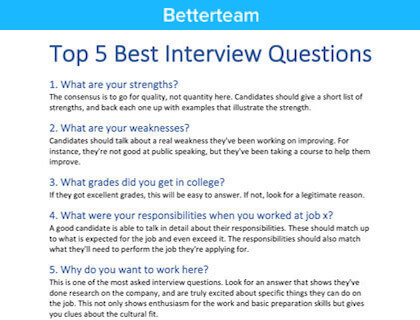 However, these questions often continue to be used. We talked about them in more detail here, below we list brief tips. nine0003
However, these questions often continue to be used. We talked about them in more detail here, below we list brief tips. nine0003
- "Tell us about yourself" There are no secrets here: tell us in chronological order how you chose an educational institution and studied, what work experience you gained after and what personal qualities help you develop. Present your experience as a professional story, logical, coherent, and short, no longer than three minutes. It is better to rehearse it at home.
- "List your strengths and weaknesses" Remember the job description. What qualities will help in the performance of this work, and what, on the contrary, will interfere? The Internet is full of advice on how to answer this question. Recruiters usually laugh that all applicants, judging by the answers, are terrible workaholics and perfectionists. Try to go against the norm and really name a couple of your weaknesses. Of course, not one that is incompatible with this work (and if there are, then this work simply does not suit you).
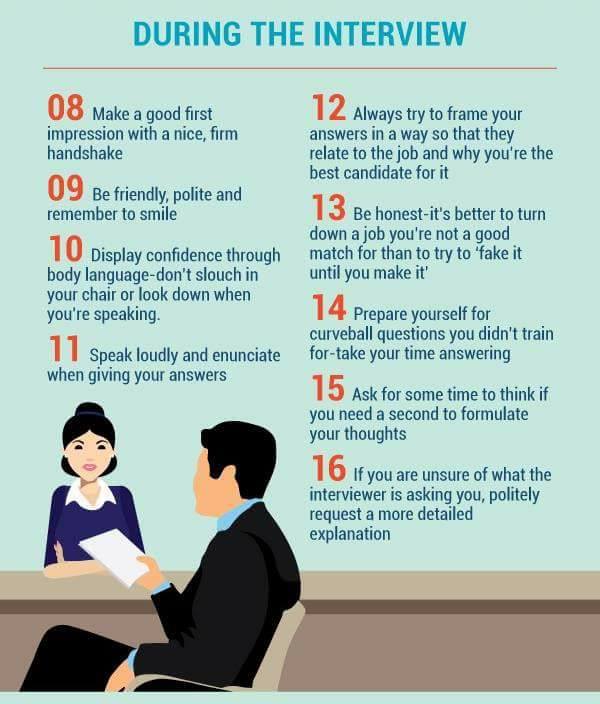 You will be surprised, but often this is exactly what is expected. The ability to evaluate yourself objectively and name your “growth zones” speaks of maturity. Just do not confuse recognition of individual weaknesses with a listing of all your sins. nine0014
You will be surprised, but often this is exactly what is expected. The ability to evaluate yourself objectively and name your “growth zones” speaks of maturity. Just do not confuse recognition of individual weaknesses with a listing of all your sins. nine0014 - “Where do you see yourself in five years?” The employer does not expect a reliable answer and will not check in five years. He is interested in something else: what are your desires focused on and what are your ambitions. If your goal is a managerial position, and the company is looking for a person for a vacancy without career growth, then for the employer this may be a sign that you will not last long in one place. Or vice versa - they are looking for a very active and in a good sense ambitious, who will build a unit from scratch, in which at first you will have to spin alone, and you would be satisfied with just a calm, stable job. nine0014
- "Why should we hire you for this position?" Summarize what has been said, describe the ideal candidate for the position and find something in common between this portrait and your qualities: “If I understand correctly, you are looking for an attentive and responsible secretary.
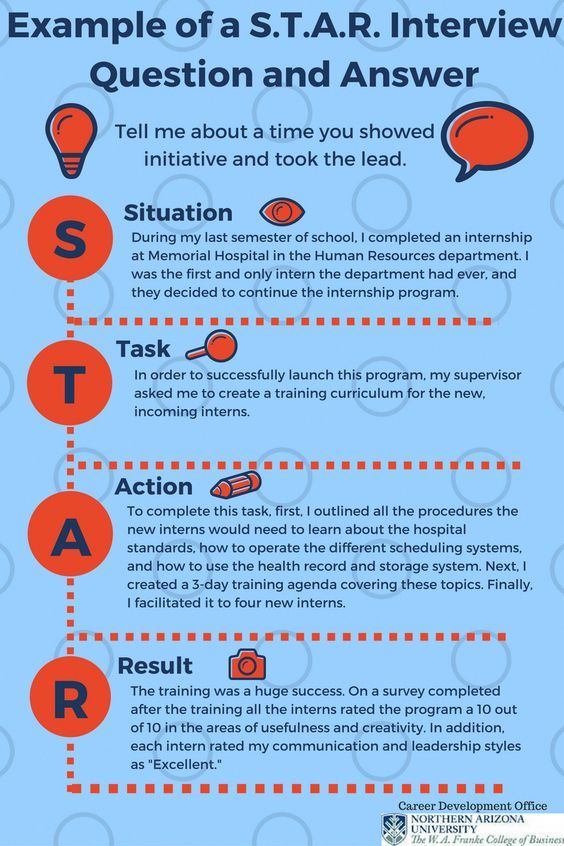 At my last job, I was the only assistant who never received a fine from the accounting department for errors in documents. I think I'm perfect for you."
At my last job, I was the only assistant who never received a fine from the accounting department for errors in documents. I think I'm perfect for you."
Experienced HR specialists develop their own set of unique questions over the years of practice, which, in their opinion, help to reveal the candidate well. Do not be surprised if you are asked about something that is not directly related to the job - the interviewer is just trying to better understand your motivation and other things that are important for this job. nine0003
To better understand a candidate's personality type and patterns of behavior, employers ask projective questions: they ask the candidate to express an opinion about people and situations with which he has nothing to do with. The candidate does not need to talk about himself, so he begins to act more freely. But since a person judges events and other people in terms of his experience, the interviewer draws useful conclusions from his story.
Projective questions are:
- "Why do people make a career?" The employer is trying to find out about the candidate's motives, to understand why career growth is important or not important to him.
 nine0014
nine0014 - "Describe the typical causes of conflict in the team." From the answer to this question, you can learn about the candidate's negative experience, his ideas about a team that is comfortable and uncomfortable for him.
- “Which client can become problematic for the company?” This is also a question about negative experiences, about conflicts that an employee may have in the future.
- Why do some people succeed in life while others fail? The answer to the question will tell you how the candidate imagines success: what are its reasons, how to repeat it. nine0014
You can bring the interviewer back from hypothetical situations to reality: “I can’t speak for all people, but personally I think…”
Success and failure at work depend not only on the person himself. The results are influenced by many factors: from the available technical means to the criteria for evaluating work in a particular organization. It is not uncommon for a successful professional from one company to be lured to another, but he did not succeed in repeating success in a new place.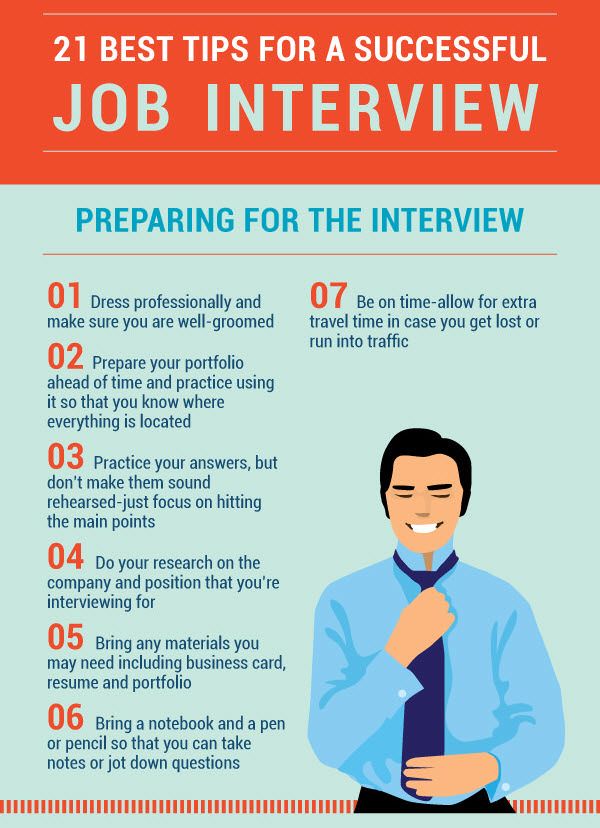
To avoid such situations, employers examine the behavior of a person in a previous place - and evaluate whether the person can become successful in their company. The behavioral interview has a strict structure and evaluation criteria. The candidate for the interview is invited to talk about specific problems and tasks that he solved.
A behavioral interview usually goes like this:
- What problem did you need to solve?
- What resources did you have? nine0014
- What solution did you choose?
- What obstacles did you have to overcome?
- Evaluate the result.
Think in advance about what your own successes or failures you would like to tell a potential employer. If possible, collect figures and facts before the interview that will help to tell about it.
A case is a problem situation that the candidate is offered to solve. In such a task, the employer lays an important question for him.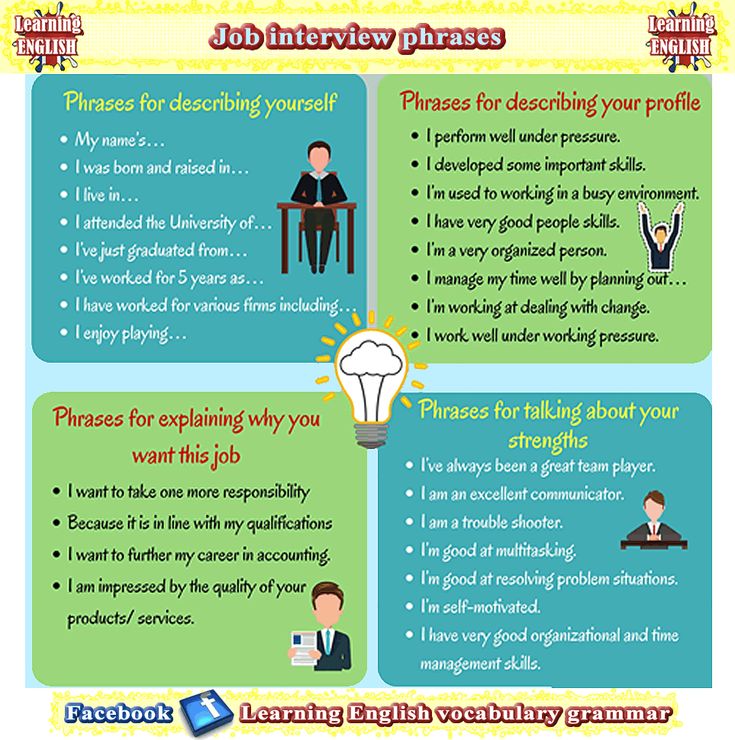 For example, a company is looking for an absolutely honest person for a position in the financial department and checks this quality with the help of case studies. A candidate for an interview at this company will be given a problem that can be solved in several obvious ways, one of which is to cheat and tell a lie. They also try to test the level of empathy of those whose future work involves a lot of communication with clients. nine0003
For example, a company is looking for an absolutely honest person for a position in the financial department and checks this quality with the help of case studies. A candidate for an interview at this company will be given a problem that can be solved in several obvious ways, one of which is to cheat and tell a lie. They also try to test the level of empathy of those whose future work involves a lot of communication with clients. nine0003
Typically, the employer describes a hypothetical situation and invites the candidate to tell how he would get out of this situation. For example:
- You have a limited budget for hosting a mass event. What will you save on so that the quality of the event is minimally affected?
- There were a number of negative publications about your company in the media. You know that everything written is true, but the leader wants a refutation. Describe the algorithm of actions to solve this problem. nine0014
It is very difficult to understand what exactly the employer wants to know with the help of a case. It is better not to guess, but to honestly tell how, in your opinion, you can solve the problem.
It is better not to guess, but to honestly tell how, in your opinion, you can solve the problem.
Another comprehensive assessment method - the assessment center - includes several blocks at once: tests, business games, group discussions and an individual presentation of the candidate. This is a very effective assessment method, which is time-consuming and rarely used by a limited number of employers (not every company can afford to organize such an assessment system), far from any position (mainly for assessing middle managers). nine0003
Prepare for the fact that you will have to do a little self-presentation, take tests, perhaps participate in business games, solve problems in a team and present your solutions.
In this case, the employer evaluates the candidate at once according to many parameters: he sees live how he communicates, solves problems, what roles he plays in the team and how he builds relationships. Therefore, the best advice for preparing for such an interview is to get enough sleep, come to it in good shape and in a working mood. nine0003
nine0003
This method is used to quickly close a "mass" position or several vacancies at once: for example, to select several call center operators or several sales assistants. The employer manages to get to know all the candidates in a short time and ask them the same questions. Be polite and act natural - this is enough to make a good impression.
Sometimes the interview question is confusing. For example:
- "Why are manholes round?" nine0014
- “What would you do if you were reduced to the size of a coin and found yourself in a mixer that would start working in a few minutes?”
- “How many yellow cars are there in the Czech Republic?”
There is no correct answer to these questions. The employer just wants to know exactly how the candidate will reason. This is important for positions where new solutions are to be proposed, rather than performing routine operations according to instructions. Take a break and think about your answer.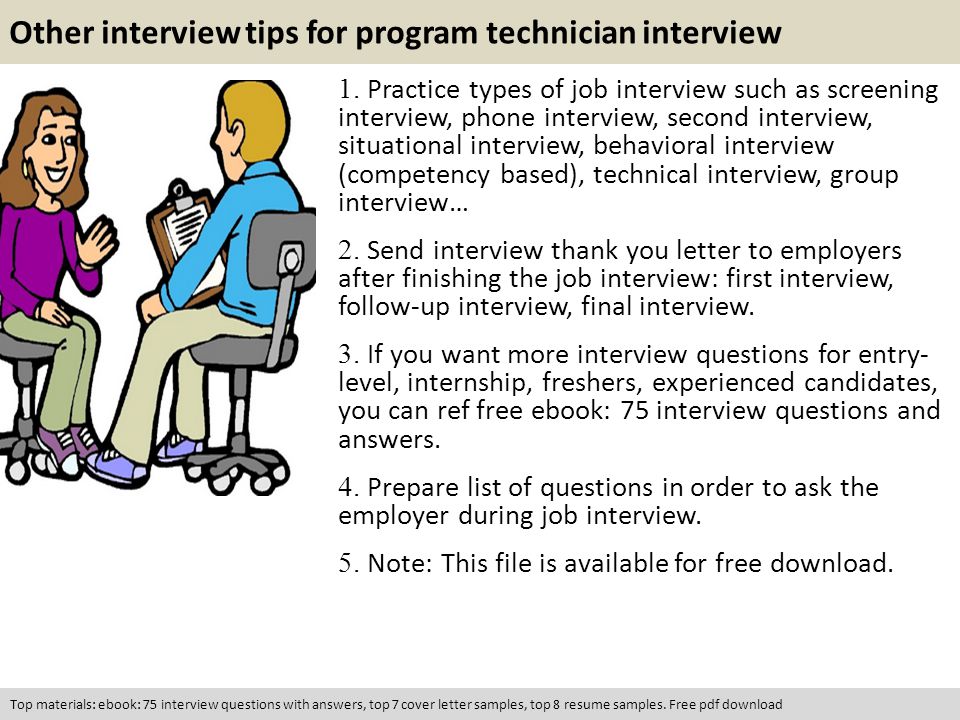 Here it is important to simply speculate on the topic - say, compare the number of inhabitants of the Czech Republic with the total number of cars and the popularity of yellow, and the like: it all depends on your imagination and sense of humor. The main thing is not to get lost and express your assumptions, even if no one knows the exact number of yellow cars in the Czech Republic. nine0003
Here it is important to simply speculate on the topic - say, compare the number of inhabitants of the Czech Republic with the total number of cars and the popularity of yellow, and the like: it all depends on your imagination and sense of humor. The main thing is not to get lost and express your assumptions, even if no one knows the exact number of yellow cars in the Czech Republic. nine0003
It is impossible to predict the questions and the train of thought of the employer. Maybe with a question about yellow cars in the Czech Republic, he tests your knowledge of the automotive industry, and gives cases to check how coherently you express your thoughts. It is better to focus on your answers and do everything in your power to get an interesting job.
Above all, try to be sincere. Let's say you successfully pretend to be a completely different person in your desire to get this job. And then it turns out that this job (neither its functionality, nor the peculiarities of the internal culture in the company) really suits you at all.